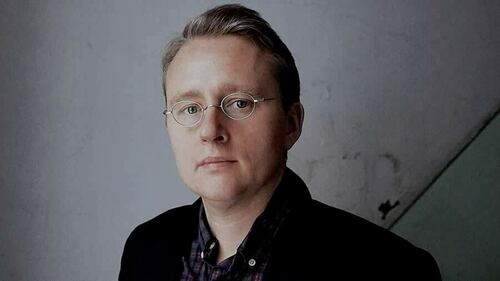
Roy Scranton, an assistant professor in the University of Notre Dame’s Department of English, has won a fellowship from the Lannan Foundation in recognition of his fiction writing.
Since 1989, the foundation has given literary awards and fellowships to both established and emerging writers “of distinctive literary merit who demonstrate potential for continued outstanding work.” It looks to honor work that “challenges our understanding of the world,” and past honorees include George Saunders, Edwidge Danticat, Barbara Ehrenreich, Elizabeth Kolbert, Don Mee Choi and Philip Metres.
“Before the award, I intended to keep writing what I felt the need to write, out of stubbornness if nothing else,” Scranton said. “Winning the award means that I will continue writing in challenging ways about the complex world we live in, a little less alone and much more emboldened.”
Scranton joined the Notre Dame faculty in 2016 after earning his Ph.D. at Princeton University. An Army veteran who served in the Iraq war, Scranton’s debut novel, "War Porn," draws upon his military experience in questioning hero narratives built up around soldiers and considering the effects violence has on the people who live where wars are fought.
His 2015 nonfiction book, "Learning to Die in the Anthropocene," is a reflection and treatise on the implications of global warming and the need for serious contemplation about the end of the Earth as humans have known it. His writing has also appeared in The New York Times, Rolling Stone and the LA Review of Books.
“I wrote these formally and emotionally difficult books because I felt the need to understand the problems they address, and I did my best to confront those problems as directly and honestly as I could,” Scranton said. “One ought to expect little thanks for such efforts, and indeed I did not. To have the Lannan Foundation recognize my work gave me a sense of relief, hope and validation that I find hard to put into words.”
Originally published by at al.nd.edu on Feb. 8.